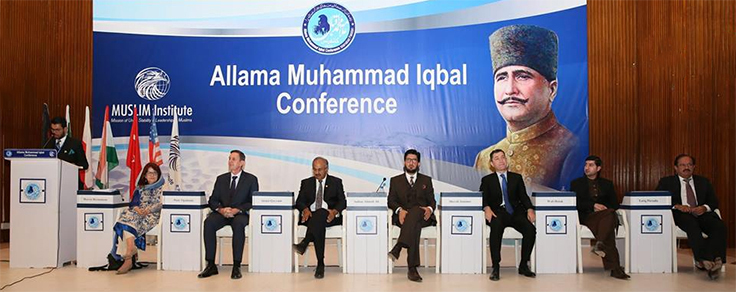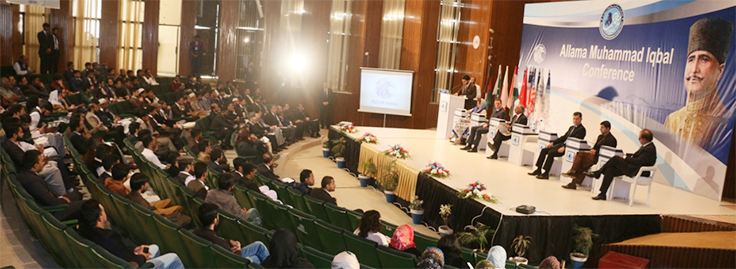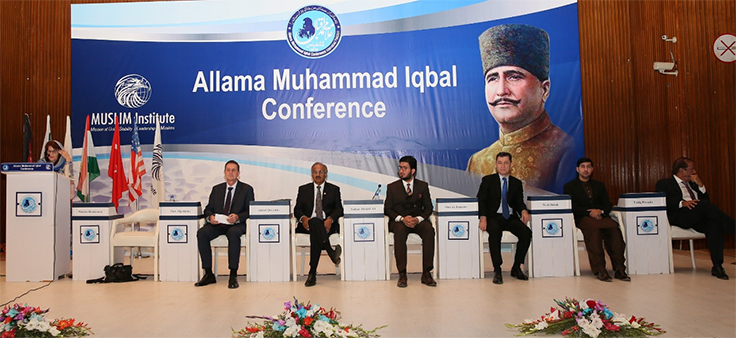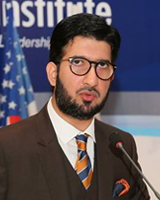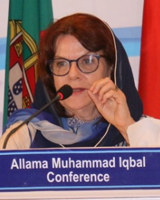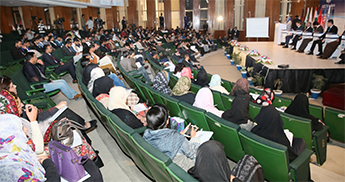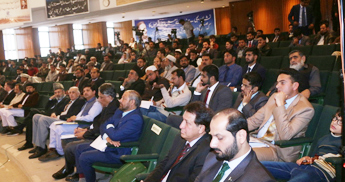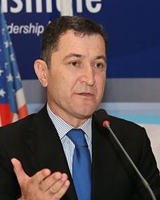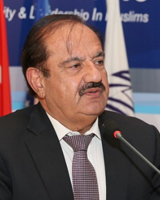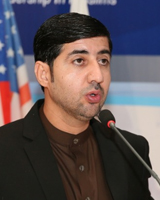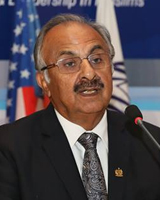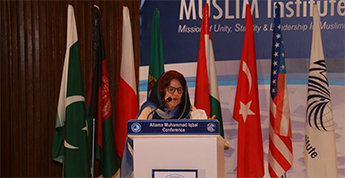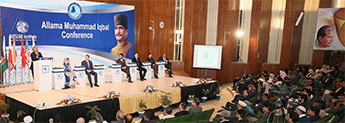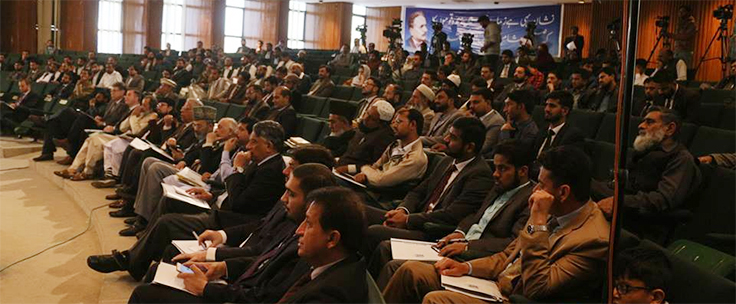|
MUSLIM Institute organized Allama Muhammad Iqbal Conference on Thursday November 8, 2018 at National Library, Islamabad. The Conference was divided in four sessions and one Cultural Musical Evening on Kalam-e-Iqbal. In the inaugural session, Sahibzada Sultan Ahmad Ali (Chairman, MUSLIM Institute) delivered the Opening Remarks whereas Keynote Speech was delivered by Prof Dr Marcia Hermansen (Director, Islamic World Studies Program, Loyola University Chicago, USA). Lt Gen Abdul Qayyum (Retd) (Chairman, Senate Committee on Defence Production, Senate of Pakistan & President Nazria Pakistan Forum, Islamabad) was chief guest on the occasion. HE Mr Piotr Opali?ski (Ambassador of Poland to Pakistan), HE Mr Sherali Jononov (Ambassador of Tajikistan to Pakistan), Mr. Hazrat Wali Hotak (Cultural Attaché, Embassy of Afghanistan, Islamabad) and Mr. Tariq Pirzada (Former Chief Commissioner Islamabad, Pakistan) were guest of honour. Mr. Asif Tanveer Awan Advocate (Research Associate, MUSLIM Institute) moderated the proceedings of inaugural session. Researchers, scholars, students, university professors, lawyers, journalists, social activists and people from different walks of life participated in the conference.
Brief Summary of the remarks shared by speakers in inaugural session are observed as under:
|
